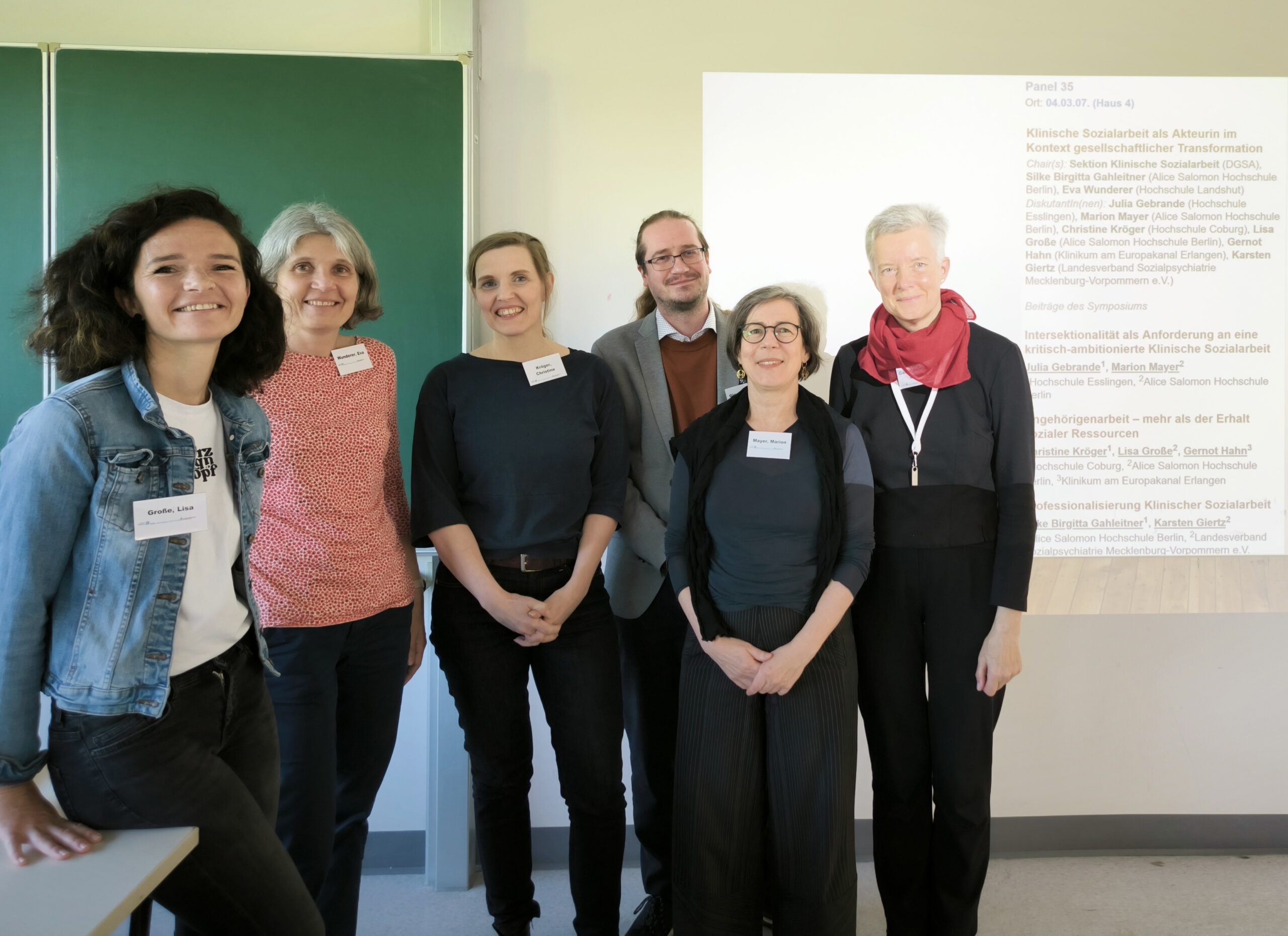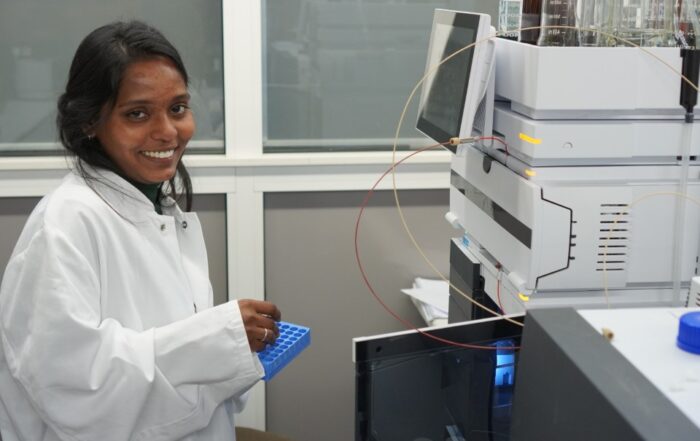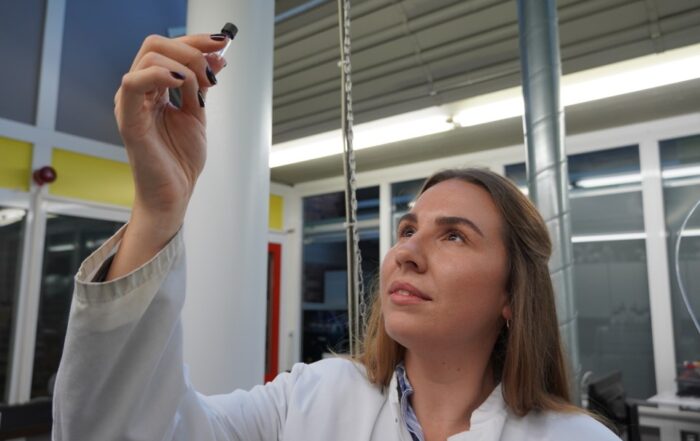31. May '24
(Press Office)Over 600 participants took part in lively discussions in more than 50 panels at the DGSA’s annual conference in Jena – including students and lecturers from the Faculty of Social Work. The role of clinical social work as an actor in the context of social transformation was critically examined in a separate symposium (moderated by Eva Wunderer, HAW Landshut).
Different perspectives were used to explore how clinical social work helps to shape social change processes and the challenges it faces in doing so.
The panel was kicked off by Julia Gebrande (Esslingen University of Applied Sciences) and Marion Mayer (Alice Salomon University of Applied Sciences), who raised awareness of structural social inequalities as well as social power relations and forms of discrimination.
In Disability Studies, Mad Studies, Queer Studies, Gender Studies, Black Studies and many more, the social conditions and construction processes of ‘otherness’ are brought into focus and ideas for a discrimination-free and barrier-free or at least low-discrimination society are developed.
The central question was: What can be learned from this for clinical social work?
Christine Kröger (Coburg University of Applied Sciences), Lisa Große (Alice Salomon University of Applied Sciences Berlin) and Gernot Hahn (Klinikum am Europakanal Erlagen) focused – against the background of the ‘person-in-environment’ perspective – on working with relatives as an important task of clinical social work.
Serious psychosocial stress, serious illnesses, crises and disabilities always affect a person’s social environment.
Therefore, the tasks of working with relatives arise in almost all core fields of social work, in child and youth welfare as well as in elderly care, hospice work, social psychiatry, addiction support or justice-related social work.
Nevertheless, a look at the practice shows that work with relatives is often barely anchored conceptually or institutionally and that far too little attention is paid to the plight and needs of relatives.
It became clear: Psychosocial work with relatives can neither be reduced to the preservation of social resources, nor can the burdens of relatives be dealt with ‘on the side’.
Ultimately, successful work with relatives is highly demanding, as it has to be embedded in an overall concept in which different forms of help from different disciplines (e.g. lifeworld-oriented support in everyday life, nursing and medical care, psychotherapy and socio-therapeutic help) are interlinked.
However, the fundamental attitude, theoretical references and broad repertoire of methods of (clinical) social work provide a good basis for designing and implementing well-founded work with relatives. Since social-clinical diagnostics and intervention in complex treatment contexts require additional and specific skills, suitable training and further education models are currently being developed on the basis of research.
Silke Birgitta Gahleitner (Alice Salomon Hochschule) and Karsten Giertz (Landesverband Sozialpsychiatrie Mecklenburg-Vorpommern) have presented concrete training and further education opportunities in clinical social work for discussion based on a multi-stage professionalization model. The underlying professionalization model also accentuates the deep roots of social-clinical expertise in social work and thus also represents a starting point for the professionalization discourse there.






